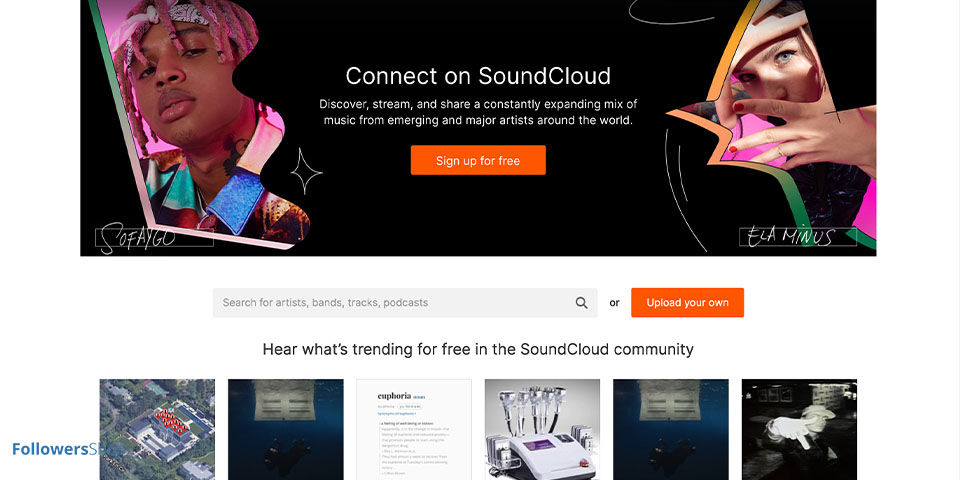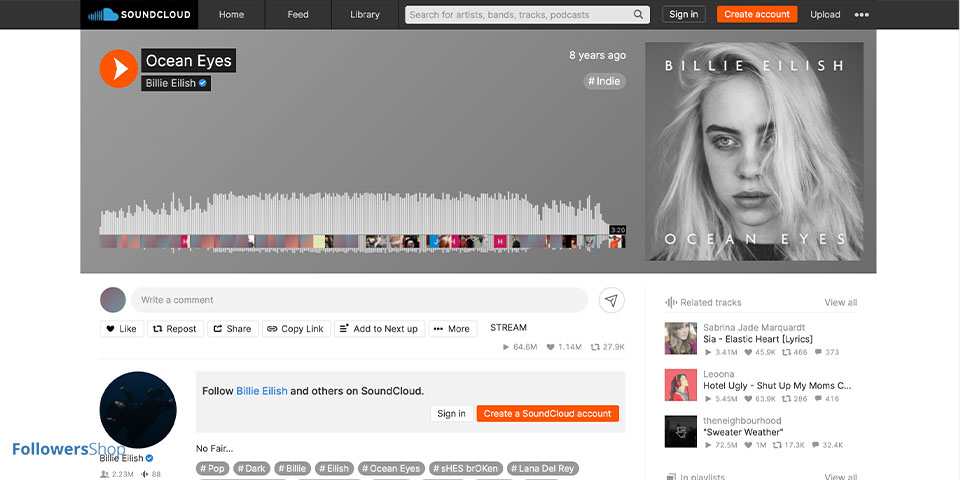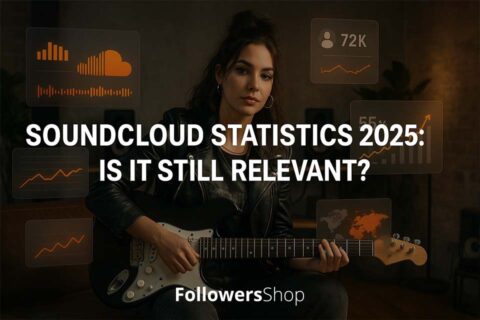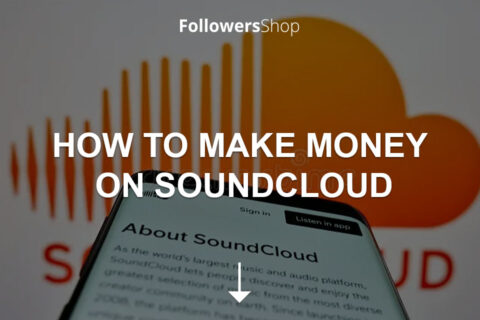One of the biggest open music streaming services out now, It is well-known for its enormous roster of independent musicians that contribute hundreds of hours of music to the website each week. In this blog, we will go into detail of when was SoundCloud made, when did SoundCloud become popular, its vision, partnerships and collaborations, together with frequently asked questions.
When Was SoundCloud Created?
In 2023, SoundCloud, a privately held corporation, have 175 million users. Its main office is located in Berlin. In 2008, Swedish electronic music artist Eric Wahlforss and sound designer Alexander Ljung launched the website. That will answer the question of how long has soudcloud been around. The platform, which allowed musicians without a record company or distributor to release songs directly to their audience, was regarded as an inventive way for artists to share and promote their music.
It was announced in August 2017 that Kerry Trainor, the former CEO of Vimeo, will take over as CEO of SoundCloud following his replacement of Alex Ljung.

The Rise of SoundCloud
Doughty Hanson Technology Ventures provided €2.5 million in Series A funding to SoundCloud in April 2009. It declared that it has one million users in May of 2010. It was announced in January 2011 that SoundCloud had secured $10 million in Series B funding from Index Ventures and Union Square Ventures. In addition to funding from Ashton Kutcher and Guy Oseary’s A-Grade Fund, SoundCloud declared five million registered users on June 15, 2011. On January 23, 2012, the platform recorded ten million registered users. It was revealed in May 2012 that boasted 15 million users and that monthly user traffic was rising by 1.5 million.
In December 2012, a new APN was launched with enhanced support for mobile devices and new features like site navigation, simultaneous listening, and the option to make personal collections. Users’ reactions were divided, with many expressing displeasures with the modification. According to reports at the time, SoundCloud was “reaching 180 million people per month” and 10 hours of content were posted every minute.
SoundCloud Vision
The vision of SoundCloud founders is to give producers music and audio material, a platform to simply and freely share their work. By providing a platform for artists of all skill levels and backgrounds to show their work to a worldwide audience, they hope to democratize the creation of music and audio. Platform imagines a world in which podcasters, musicians, and other audio creators may establish direct connections with their listeners, foster creative communities, and succeed.
Partnerships and Collaborations
After looking into “when was SoundCloud created”, let’s talk about partnerships and collaborations. Twitter declared in March 2014 that it would collaborate with SoundCloud to create its inaugural integrated music application. But the concept never got off the ground since did not have the necessary agreements with record labels in place to support licensed music. There were 40 million registered users on SoundCloud as of July 2013, and 20 million new users joined each month.
In January 2014, SoundCloud declared that it had started licensing discussions with big music labels to resolve the issue of illegal, copyrighted content frequently showing up on the network. The news came after an investment round that netted US$60 million, translating into a $700 million valuation. Media reports claim that the talks were started in an effort to steer clear of the same issues that Google encountered after having to deal with a lot of takedown requests on its YouTube video-sharing website.
In order to monitor copyright infringement on the platform, SoundCloud and Zefr, a content rights management platform, teamed in 2015. Both artists and fans, who were concerned about the power of big media companies, criticized these changes. Some expressed dissatisfaction about SoundCloud’s apparent departure from its original user base of independent musicians and their supporters in favor of drawing in venture capital investment and a more mainstream audience.

How Did SoundCloud Direct the Music Industry?
SoundCloud rap emerged as a popular genre thanks to its popularity among hip-hop artists and fans. Rappers on this platform created their own style and community. The term “mumble rap” originated from the lyrics of songs that were frequently repeated, ambiguous, or technically distorted. Additionally, a lot of emcees had eye-catching facial tattoos and vividly colored hair. Generation Z’s hip-hop was SoundCloud rap, whose DIY spirit, attitude, and clothes reminded some of the punk movement in rock & roll.
When Billie Eilish, at just 13 years old, posted her debut song, “Ocean Eyes,” on SoundCloud in 2015, it quickly became popular. Generation Z’s hip-hop was next gen rap, whose DIY spirit, attitude, and clothes reminded some of the punk movement in rock & roll. Rappers Post Malone and Lil Uzi Vert from SoundCloud went on to achieve enormous global success; Post Malone’s song “Sunflower” was one of the all-time best-selling singles.
SoundCloud in 2025 remains a culturally essential platform, blending streaming, social interaction, and direct artist monetization for over 130 millio...
SoundCloud in 2025 has refined its algorithm to better connect artists with their ideal listeners, placing heavy emphasis on metrics like play-through...
The company’s market share did not match its enormous reputation in the music industry. SoundCloud drew independent musicians, but it did not have the same impact on artists signed to large companies.
Speaking of the music industry, if you have a dream of becoming an artist on and want your music to reach more people, check out our SoundCloud Plays service !
Conclusion
In summary, SoundCloud has not only transformed the music industry but also made it possible for independent musicians to succeed in the world of the internet. With millions of members globally, it has experienced exponential growth since its launch in 2008. Even with obstacles like copyright violations and managerial changes, App is still a major player in the online music sharing market. Its effect goes beyond music because it’s evolved into a podcast and audio content platform. SoundCloud empowers both listeners and producers by influencing the future of audio production and distribution through partnerships, collaborations, and its distinctive community-driven approach.




No comments to show.